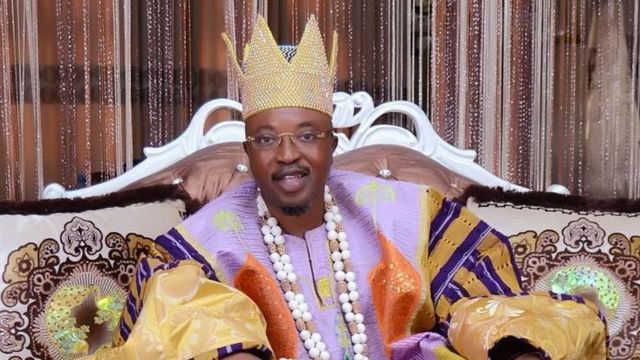Paragraph 1: The Monarch’s Canadian Passport Renewal and Declaration
A video of the Oluwo of Iwo, Oba Abdulrasheed Akanbi, has ignited online discussions after the monarch publicly expressed his admiration for Canada, declaring it the “best of the best country in the world.” The video captures the Oluwo’s evident excitement following the renewal of his Canadian passport. He proudly displays both his old and new passports, highlighting the 10-year validity of the renewed document. While acknowledging that his previous passport remained valid for another year, he explained his proactive approach to renewal, emphasizing the efficiency of the 24-hour service he experienced. The monarch’s open praise for Canada, while also expressing hope for Nigeria’s future improvement, has generated mixed reactions, especially considering his prominent position as a traditional ruler in Nigeria.
Paragraph 2: Contextualizing the Oluwo’s Statement and Public Reactions
The Oluwo’s declaration of Canada’s superiority has sparked debate and commentary across social media platforms. Many Nigerians have interpreted his statement as a subtle critique of their own country, particularly in light of ongoing socio-economic challenges and governance issues. Some have questioned the appropriateness of such a public endorsement of another nation by a traditional ruler, suggesting it could be perceived as unpatriotic. Others have defended his right to express his personal opinion, arguing that it reflects the lived experiences of many Nigerians who seek better opportunities and quality of life abroad. The incident highlights the complex relationship between national identity, patriotism, and the pursuit of individual well-being in a globalized world.
Paragraph 3: Nigerian Passport Costs and Government Justification
The Oluwo’s passport renewal coincides with a recent upward review of Nigerian passport fees. The cost of a 32-page passport booklet has been raised to ₦100,000, while a 64-page booklet now costs ₦200,000. The Nigerian government has defended this price increase, citing the need to maintain passport quality, combat corruption, and ensure efficient processing and delivery of travel documents. These justifications aim to address public concerns about the rising cost of essential government services, but questions remain about the effectiveness of these measures in achieving the stated objectives.
Paragraph 4: Examining the Implications of the Oluwo’s Actions
The Oluwo of Iwo’s actions and statements raise several important points for consideration. Firstly, his open praise for Canada underscores the appeal of developed nations for individuals seeking better living standards, security, and opportunities. This highlights the challenges facing developing countries in retaining their skilled and educated citizens. Secondly, the incident raises questions about the role and responsibilities of traditional rulers in a modern nation-state. Should their public pronouncements remain strictly within the confines of traditional affairs, or are they entitled to express personal opinions on national and international matters? Finally, the timing of the Oluwo’s passport renewal coinciding with the increase in Nigerian passport fees adds another layer of complexity to the discussion, potentially fueling public discontent and criticism of government policies.
Paragraph 5: Deeper Dive into the Nigerian Diaspora and Emigration Trends
The Oluwo’s affinity for Canada reflects a broader trend of Nigerian emigration, particularly among skilled professionals and educated individuals seeking better opportunities abroad. The Nigerian diaspora is a significant and growing population, contributing significantly to the economies of their host countries while also maintaining strong ties to their homeland. Factors driving this emigration include a lack of adequate employment opportunities in Nigeria, concerns about security and political instability, and the desire for a higher quality of life, including access to better healthcare and education systems. The Oluwo’s case, while unique given his status, exemplifies the pull factors that attract Nigerians to countries like Canada, offering a stable political environment, robust social welfare programs, and a generally higher standard of living.
Paragraph 6: The Broader Context of Passport Costs and Accessibility in Nigeria
The increased cost of Nigerian passports raises concerns about accessibility for ordinary citizens. For many Nigerians, obtaining a passport represents a significant financial burden, potentially hindering their ability to travel for education, employment, or family reunification. The government’s justification for the price hike, focusing on quality and efficiency improvements, must be demonstrably translated into tangible results to alleviate public skepticism. Furthermore, the issue of passport accessibility intersects with broader discussions about economic inequality and the affordability of essential government services for all citizens. Ensuring equitable access to travel documents remains a crucial challenge for the Nigerian government in its efforts to promote social mobility and facilitate citizens’ participation in the global community.














